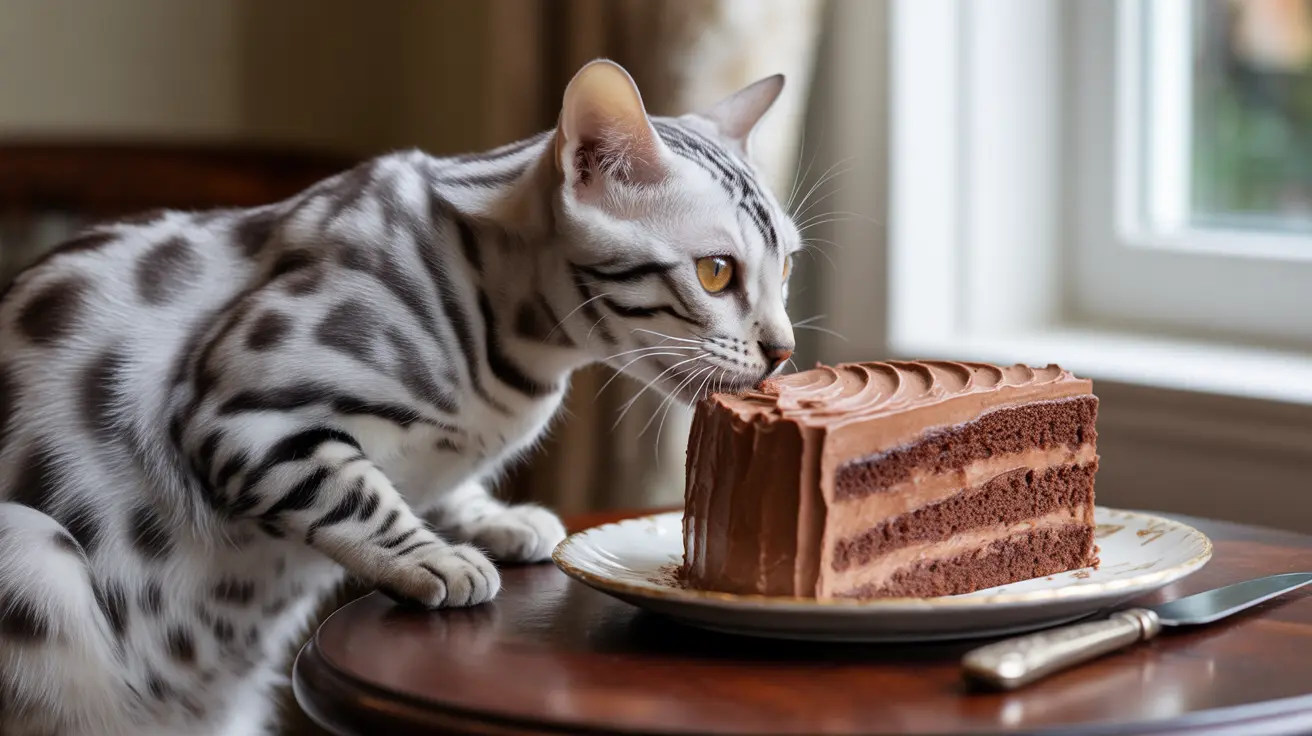As a cat owner, you've probably wondered if sharing a slice of cake with your feline friend is safe. While those pleading eyes might be hard to resist, the question "can cats eat cake?" has a clear answer from veterinary experts: cake is not a safe or appropriate treat for cats.
In this comprehensive guide, we'll explore why cake can be dangerous for cats, what ingredients to watch out for, and what to do if your cat accidentally consumes cake. We'll also suggest some safer alternatives for treating your feline companion.
Understanding Why Cats and Cake Don't Mix
Cats are obligate carnivores, which means their bodies are designed to process and utilize nutrients primarily from animal-based proteins. Unlike humans, cats lack the necessary enzymes to properly digest many ingredients commonly found in cake, including sugars and complex carbohydrates.
Interestingly, cats don't even have taste receptors for sweetness, meaning they're not attracted to cake for its sugary taste. If your cat shows interest in cake, it's likely due to the fat content or other aromatic ingredients.
Dangerous Cake Ingredients for Cats
Common Toxic Components
Several cake ingredients can be potentially lethal to cats:
- Chocolate (contains theobromine and caffeine)
- Raisins and grapes (can cause kidney failure)
- Macadamia nuts and other nuts
- Xylitol and artificial sweeteners
- Alcohol-based flavorings
Problematic Non-Toxic Ingredients
Even ingredients that aren't strictly toxic can cause health issues:
- Sugar (contributes to obesity and diabetes)
- Dairy products (most cats are lactose intolerant)
- Fats and oils (can trigger pancreatitis)
- Artificial preservatives and additives
Health Risks of Feeding Cake to Cats
Regular consumption of cake can lead to several serious health conditions in cats:
Short-term Effects
- Gastrointestinal upset
- Vomiting and diarrhea
- Lethargy
- Dehydration
Long-term Consequences
- Obesity
- Diabetes
- Dental problems
- Chronic digestive issues
- Heart disease
- Joint problems
What to Do If Your Cat Eats Cake
If your cat has consumed cake, follow these steps:
- Identify what type of cake and ingredients were consumed
- Monitor for immediate adverse reactions
- Contact your veterinarian if:
- The cake contained toxic ingredients
- Your cat shows unusual symptoms
- You're unsure about the ingredients
Safe Alternatives to Cake for Cats
Instead of sharing cake with your cat, consider these safer options:
- Commercial cat treats specifically formulated for felines
- Small pieces of cooked, plain meat
- Cat-specific "birthday cakes" made with pet-safe ingredients
- Catnip-based treats
- freeze-dried meat treats
Frequently Asked Questions
Is it safe to give my cat a small piece of plain cake?
No, even plain cake isn't recommended for cats. It provides no nutritional value and can contribute to obesity and other health issues.
What ingredients in cake are toxic or harmful to cats?
Chocolate, raisins, grapes, nuts (especially macadamia), xylitol, and alcohol-based flavorings are toxic to cats. Other ingredients like sugar and dairy can cause health problems.
What health problems can result if my cat eats cake regularly?
Regular cake consumption can lead to obesity, diabetes, dental problems, digestive issues, and pancreatitis in cats.
How should I respond if my cat accidentally eats chocolate or raisin cake?
Contact your veterinarian immediately. These ingredients can be lethal to cats, and prompt medical attention is essential.
What are safe treat alternatives to cake for cats?
Choose commercial cat treats, small pieces of cooked meat, or special cat-friendly "birthday cakes" made with appropriate ingredients for felines.
Conclusion
While sharing food with our pets can feel like a way to show love, cake is one treat that should never be given to cats. Instead, focus on providing your feline friend with appropriate, nutritious treats that support their health and well-being. If you want to celebrate a special occasion with your cat, numerous pet-safe alternatives are available that both you and your cat can feel good about.






